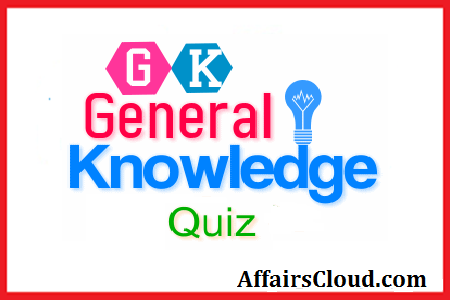Hello Aspirants. Welcome to Online General Knowledge section in Affairs cloud, which is important for all the competitive exams. We have created Some questions related to General Science(Biology) !!
- MRI mean
1.Magnetic Resonance Indicator
2.Maximum Resonance Imaging
3.Magnetic Resizing Imaging
4.Magnetic Resonance Imaging
5.None of theseAnswer – 4.Magnetic Resonance Imaging
Explanation :
Magnetic resonance imaging (MRI) is a test that uses a magnetic field and pulses of radio wave energy to make pictures of organs and structures inside the body - Insects Responsible for transmitting disease are called ………………..
1.Fleas
2.Ticks
3.Vector
4.Arthropods
5.None of theseAnswer – 3.Vector
Explanation :
Vectors are living organisms that can transmit infectious diseases between humans or from animals to humans. Many of these vectors are bloodsucking insects. - Tamiflu is front line drug against ……………
1.AIDS
2.Bird Flu
3.Swine Flu
4.Cancer
5.None of theseAnswer – 2.Bird Flu
Explanation :
Tamiflu, one of the front-line drugs against bBrd flu, can kill, a new warning from America’s drug regulator - …………….. scientific name is Columba livia
1.Parrot
2.Pigeon
3.Penguin
4.Peacock
5.None of theseAnswer – 2.Pigeon
Explanation :
The rock dove (Columba livia) or rock pigeon is a member of the bird family .The genus name Columba is the Latin word meaning “pigeon, dove”. - The First successful heart transplantation was done by …………………..
1.CN Barnard
2.Hamilton Naki
3.Astley Paston Cooper
4.William Hartnell
5.None of theseAnswer – 1.CN Barnard
Explanation :
Christiaan Neethling Barnard was a South African cardiac surgeon who performed the world’s first successful human-to-human heart transplant. - …………………. helps to prevent infections in the human body
1.Vitamin B
2.Vitamin D
3.Vitamin A
4.Vitamin C
5.None of theseAnswer – 4.Vitamin C
Explanation :
Vitamin C is a water-soluble vitamin that has the ability to protect the cells of the body, including the immune cells from the harmful effects of free radicals. This increased lifespan of the immune cells boosts the ability of the immune system to fight diseases. - An ECG show the functioning of the …………………
1.Lungs
2.Heart
3.Brain
4.Stomach
5.None of theseAnswer – 2.Heart
Explanation :
The electrocardiogram (ECG or EKG) is a diagnostic tool that is routinely used to assess the electrical and muscular functions of the heart. - Cell or tissue death within a living body is referred as ……………..
1.Necrosis
2.Mitochondrial
3.Sickle
4.Zygote
5.None of theseAnswer – 1.Necrosis
Explanation :
Necrosis is the name given to unprogrammed death of cells and living tissue - ………………… is an insufficient blood supply in human body
1.Leukemia
2.Anemia
3.Ischema
4.Hemophilia
5.None of theseAnswer – 3.Ischema
Explanation :
Ischema is an insufficient blood supply to a specific organ or tissue, not to the whole body - Thalassemia is a hereditary disease. It affects …………
1.Blood
2.Liver
3.Heart
4.Skin
5.None of theseAnswer – 1.BloodExplanation :
Thalassemia is actually a group of inherited diseases of the blood that affect a person’s ability to produce hemoglobin, resulting in anemia. Hemoglobin is a protein in red blood cells that carries oxygen and nutrients to cells in the body.
AffairsCloud Recommends Oliveboard Mock Test
AffairsCloud Ebook - Support Us to Grow
Govt Jobs by Category
Bank Jobs Notification



